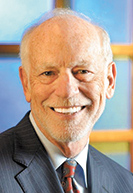Subscriber Benefit
As a subscriber you can listen to articles at work, in the car, or while you work out. Subscribe NowAn aircraft engine fire that sparked a foreign arbitration discovery battle between an American manufacturer and a British company over a 150-year-old law is headed to the United States Supreme Court for clarification.
Justices on March 22 granted certiorari in Servotronics, Inc. v. Rolls-Royce PLC, 20-794, agreeing to resolve a circuit split to clarify the definition of “tribunal” as written in 28 U.S.C. §1782. At the heart of the case between engine maker Rolls-Royce and American parts manufacturer Servotronics is whether private foreign arbitration qualifies as a “tribunal.”

The question posed before the court begs an answer that is urgently needed, arbitrators say.
“Everyone in the international arbitration community desperately wants a resolution one way or the other, with different viewpoints depending on what one thinks is the right outcome,” said John Pinney, a fellow of the Chartered Institute of Arbitrators (CIArb).
Pinney, who serves as both a mediator and arbitrator for CIArb and chairs the International Practice Group of Graydon Head & Ritchey in Cincinnati, wrote an amicus brief in support of the certiorari petition on the matter, saying that the case presents a highly important issue of federal law that can only be resolved by the Supreme Court.
At odds
At its beginning, the case originated after a plane engine tailpipe fire took place during testing at a Boeing facility on American soil. Rolls-Royce manufactured, sold and installed the engine to the Boeing Company for use in its 787-9 Dreamliner aircraft, while Servotronics manufactured a metering valve component of the engine.
Boeing sought compensation from Rolls-Royce for damage to the aircraft, and Rolls-Royce and its insurers settled the claim with Boeing for over $12 million, without Servotronics’ participation.
Rolls-Royce then sought indemnification and reimbursement from Servotronics. However, Servotronics cited failures on the part of both Boeing and Rolls-Royce personnel to “follow their own procedures for the proper response to warning signs of fuel flow issues” that could have prevented the fire.
Under a long-term agreement between Rolls-Royce and Servotronics, any dispute not resolved through negotiation or mediation must be submitted to binding arbitration in England, under the rules of the CIArb. Rolls-Royce initiated arbitration with the CIArb.
Documents were exchanged between the three involved parties, but Servotronics alleged that Rolls-Royce and Boeing “refused to produce materials that are critical to” their case during discovery. As such, Servotronics filed to compel documents and testimony under 28 U.S.C. §1782 in the Northern District Court of Illinois, seeking a subpoena compelling Boeing to produce documents for use in the London arbitration.
The subpoena was issued by the Illinois district court but subsequently quashed by the 7th Circuit Court of Appeals, which found that a private foreign arbitration proceeding is not a “foreign or international tribunal” under the scope of §1782.
The 7th Circuit’s decision adds to the circuit split on the definition of “tribunal,” joining the 2nd and 5th Circuits’ decision that private arbitrations are not covered under the provision. On the flip side, the 4th and 6th Circuits have held that 28 U.S.C. §1782(a) does encompass private commercial arbitral tribunals.
Resolving which is correct, Pinney said, is now up to the Supreme Court.
What’s in a word?
An important aspect of the Supreme Court’s decision will be to determine what the word “tribunal” legally means and encompasses. Arguing on the side of history, Servotronics presented that the U.S. Congress clearly intended for “tribunal” to be all-encompassing.
“As recast and expanded by the 1964 amendments, Section 1782’s provision for assistance in obtaining documentary and other tangible evidence as well as testimony ‘in any judicial proceeding pending in any court in a foreign country’ was replaced with ‘a proceeding in a foreign or international tribunal,’ thus eliminating the words ‘judicial,’ ‘court’ and ‘pending,’” Servotronics wrote in its petition for cert.

The opposite argument was made by Rolls-Royce and Boeing, who turned instead to dictionary definitions.
“The statutory phrase at issue here — ‘foreign or international tribunal,’ 28 U.S.C. § 1782(a) — is properly understood as referring to a body that derives its authority from the government, and not a panel of arbitrators convened by private contractual agreement,” Rolls-Royce and Boeing wrote in their brief in opposition.
The term “tribunal” in Section 1782(a) is not unambiguous and could ultimately be interpreted in different ways, opined Indiana University Robert H. McKinney School of Law professor Frank Emmert.
In his opinion, the historic interpretation arguments made to the defend the definition of “tribunal” are “rather disappointing.”
“In the absence of clear statutory language or intent, the better solution should prevail. We should provide the interpretation not on the basis of what the drafters may have thought in the 1950s or 1960s, but what we know today,” he said. “Hindsight is always 20/20, and why close our eyes to state-of-the-art information and analysis?”
Awaiting clarification
Should the Supreme Court sustain the right of parties in private international arbitrations to seek relief in Section 1782, Pinney said his view is that the arbitral tribunals should take control of the matter and give direction to parties with regard to the manner in which such applications should be considered.
“One can argue fairly strongly that interest of justice can be tempered with regard to proportionality and the expected materiality of the kinds of evidence sought. By that balancing test there are sufficient protections that would create an opportunity for parties to use arbitration to get a reasonably fair and just result,” he said.
“Part of the problem from a litigation standpoint is that litigation is rarely a satisfactory resolution when you have cross-border business transactions where parties from different cultures and legal systems are engaged in trying to resolve it through state court processes,” Pinney continued, citing concerns of potential language barriers to the court and lack of enforceability of a judge’s ruling.
Looking how the Supreme Court’s decision could leave a mark on international commercial arbitration, Emmert noted that compared to transitional litigation, the former is faster, cheaper, confidential and allows reliance on the parties’ own attorneys.
“These advantages would be lost in extensive American-style discovery proceedings,” he said. “As a result, we would probably see a decline in arbitration and additional burdens on the courts, which are already overburdened and poorly suited to take on these complex commercial cases that often require the application of foreign and/or international laws.”
Emmert further noted that because many foreign countries are hostile to American-style discovery, if the U.S. Supreme Court allows such discovery in international commercial arbitration, it would put American-based enterprises at a disadvantage because “their business partners and potential opponents in dispute settlement would not be subject to similarly far-reaching discovery rules in their respective jurisdictions.”
As the parties and international arbitration community await clarity from the U.S. Supreme Court, a pending petition was filed asking the Supreme Court to stay an order by the U.S. District Court for the District of South Carolina authorizing requests by Servotronics for U.S. deposition subpoenas to current and former Boeing employees, pending the justices’ resolution of the case.•
Please enable JavaScript to view this content.

